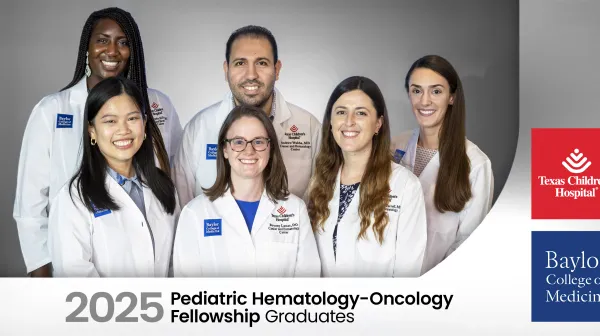Sarah E. Sartain, MD
- Cancer and Blood Disorders

Director, Hemostasis and Thrombosis Program
Associate Professor, Department of Pediatrics, Division of Hematology-Oncology, Baylor College of Medicine
Email: sesartai@texaschildrens.org
Phone:
832-822-4362
Phone:
832-824-1309
Office
Languages: English
Office location:
Texas Medical Center
6701 Fannin Street
Houston, TX 77030
Get to know Sarah E. Sartain, MD
Dr. Sarah Sartain is the Director of the Hemostasis and Thrombosis Program at Texas Children’s Hospital. Her main focus lies in treating children with disorders of bleeding and clotting. She developed her interest in this field of hematology during her fellowship training at Texas Children’s Hospital when she observed that hospitalized children are at greatest risk for throwing off the delicate balance of the coagulation system, leading to problems with bleeding and clotting. She enjoys interfacing with all other services of the hospital in treating patients with these disorders. Furthermore, she finds diagnosing and treating the most complex disorders of hemostasis and thrombosis in hospitalized children to be a compelling challenge and enjoys following her patients long-term in the outpatient clinic.
According to Dr. Sartain, this is an exciting and pivotal time in the field of pediatric hemostasis and thrombosis. Recent published data have shown efficacy and safety of the direct oral anticoagulants for the treatment of blood clots. These drugs promise to improve the quality of life of children with thrombosis, as they can be taken by mouth and do not require frequent blood-test monitoring.
Most importantly, Dr. Sartain has an intense research interest in clotting disorders and performs research in a basic science laboratory to answer important and unknown clinical questions. She regularly brings difficult patient questions to the laboratory so she may investigate the molecular mechanisms of disease, with the goal improving the care and treatment of children with blood clots.
Education
| School | Education | Degree | Year |
|---|---|---|---|
| Baylor College of Medicine | Fellowship | Pediatric Hematology-Oncology | 2015 |
| Boston Children’s Hospital/Boston Medical Center, Harvard Medical School and Boston University School of Medicine | Residency | Pediatrics | 2012 |
| Boston Children’s Hospital/Boston Medical Center, Harvard Medical School and Boston University School of Medicine | Internship | Pediatrics | 2010 |
| Tulane University School of Medicine | Medical School | Medical Degree | 2009 |
| Emory University | Bachelors | Bachelor of Science, Neuroscience and Behavioral Biology | 2005 |
Organizations
| Organization Name | Role |
|---|---|
| American Society of Hematology (ASH) | Member |
| American Society of Pediatric Hematology/Oncology (ASPHO) | Member |
| Hemostasis and Thrombosis Research Society (HTRS) | Member |
Board Certifications
| Title |
|---|
| American Board of Pediatrics |
| American Board of Pediatrics - Pediatric Hematology/Oncology |
Honors and awards
- 2024
-
Excellence in Education Faculty Award, Texas Children's Cancer and Hematology Center
- 2021
-
Norton Rose Fulbright Faculty Excellence Award in Teaching and Evaluation
- 2021
-
Power of Professionalism (POP) Award, Baylor College of Medicine, for displaying commitment to exemplary professionalism, as nominated by peers.
- 2021
-
Texas Children’s Cancer and Hematology Center Faculty Education Award, established to recognize a significant contribution to the educational objectives of the Texas Children’s Cancer and Hematology Centers by members of the faculty.
- 2021
-
Texas Children’s Cancer and Hematology Center Fellows’ Annual Award for Most Outstanding Foundations in Pediatric Hematology/Oncology Lecture, “Thrombosis.”
- 2021
-
Best Oral Presentation, “Rate of thrombosis in children and adolescents hospitalized with COVID-19 or MIS-C,” Texas Children’s Cancer and Hematology Centers’ 17th Annual Research Symposium
- 2021
-
Best Poster Presentation, “Von Willebrand Factor Activates the Alternative Complement Pathway in vivo in Murine Thromboinflammation,” Texas Children’s Cancer and Hematology Centers’ 17th Annual Research Symposium
- 2019
-
American Society of Hematology Scholar Award
- 2018
-
Thrombosis and Hemostasis Societies of North America Young Investigator Travel Award for the abstract titled “Efficient alternative complement pathway regulation decreases C3a and C5a generation in human cerebral vs. renal microvascular endothelial cells.”
- 2017
-
Hemostasis and Thrombosis Research Society Travel Award for the abstract titled “Diminished Regulation of the Alternative Complement Pathway Makes Glomerular Endothelial Cells Susceptible to Damage.”
- 2016
-
Thrombosis and Hemostasis Societies of North America Trainee Travel Award for the abstract titled, “Tumor necrosis factor activates the alternative complement pathway and impairs activation of protein C in human glomerular endothelial cells.”, Thrombosis and Hemostasis Summit of North America
- 2016
-
Baylor College of Medicine Pediatric Pilot Award
- 2014
-
American Society of Hematology Abstract Achievement Award for the abstract titled, “Factor H (FH) is Released Slowly and Continuously from Human Endothelial Cells (ECs): FH is Not Packaged in Weibel-Palade Bodies or Secreted in Response to EC Stimulation.”
- 2014
-
HTRS Mentored Research Award
- 2013
-
Tumor Board Award, Hematology/Oncology, Texas Children's Hospital
* Texas Children’s Hospital physicians’ licenses and credentials are reviewed prior to practicing at any of our facilities. Sections titled From the Doctor, Professional Organizations and Publications were provided by the physician’s office and were not verified by Texas Children’s Hospital.
Highlights
Research Area:
Hemostasis and Thrombosis
Dr. Sartain’s current research investigates the interaction between inflammation and the immune system in blood vessel damage and blood clot formation. She is specifically interested in a group of devastating clotting disorders known as thrombotic microangiopathy (TMA), which have high morbidity and mortality rates in children. In a laboratory at nearby Rice University where she is an Adjunct Assistant Professor, she studies the role of part of the immune system known as the alternative complement pathway in causing these disorders. In her lab, she has developed a mouse model of inflammatory TMA with the long-term goal of developing therapies to prevent and treat these disorders, ultimately improving the quality of life and survival of patients with TMA.





